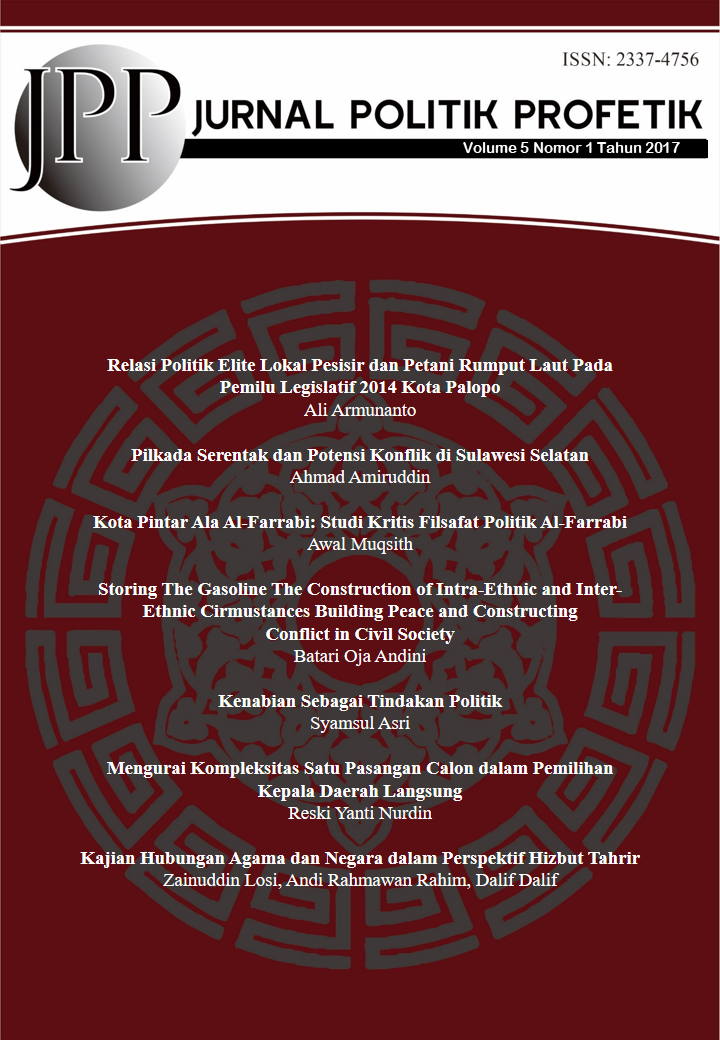PILKADA SERENTAK DAN POTENSI KONFLIK DI SULAWESI-SELATAN
Abstract
One objective of a state is to create stability and prosperity for its people. To achieve this objective requires leaders who have the capacity and integrity to accomplish the state welfare. In electoral context, one of the goals of the election is to elect a qualified leader, but the goals of fair elections precisely have their own constraints, particularly conflict potentials that often occur in every election in Indonesia. In South-Sulawesi, in particular, the conflict potentials during the election frequently occurs in communities, which leads to friction at the elite level so that the goals of peaceful and fair elections are often far from the objectives of the Public Election Laws.
Downloads
References
Baghi, Felix.Pluralisme, Demokrasi, dan Toleransi. Yogyakarta: Moya Zam Zam Printika, 2012.
Down, Anthony. An Economic Theory of Democracy”, 1957.
Lipset, Martin, Seymour. Political Man: Basis Sosial Tentang Politik. Yogyakarta: Pustaka Pelajar, 2007.
Marijan, Kacung.Demokratisasi di Daerah, Pelajaran Langsung dari Pilkada Langsung. Surabaya: Pustaka Eureka, 2006.
Nas, Jayadi. Konflik Elite di Sulawesi Selatan; Analisis Pemerintahan dan Politik Lokal. Makassar: Lembaga Penelitian Universitas Hasanuddin, 2007.















